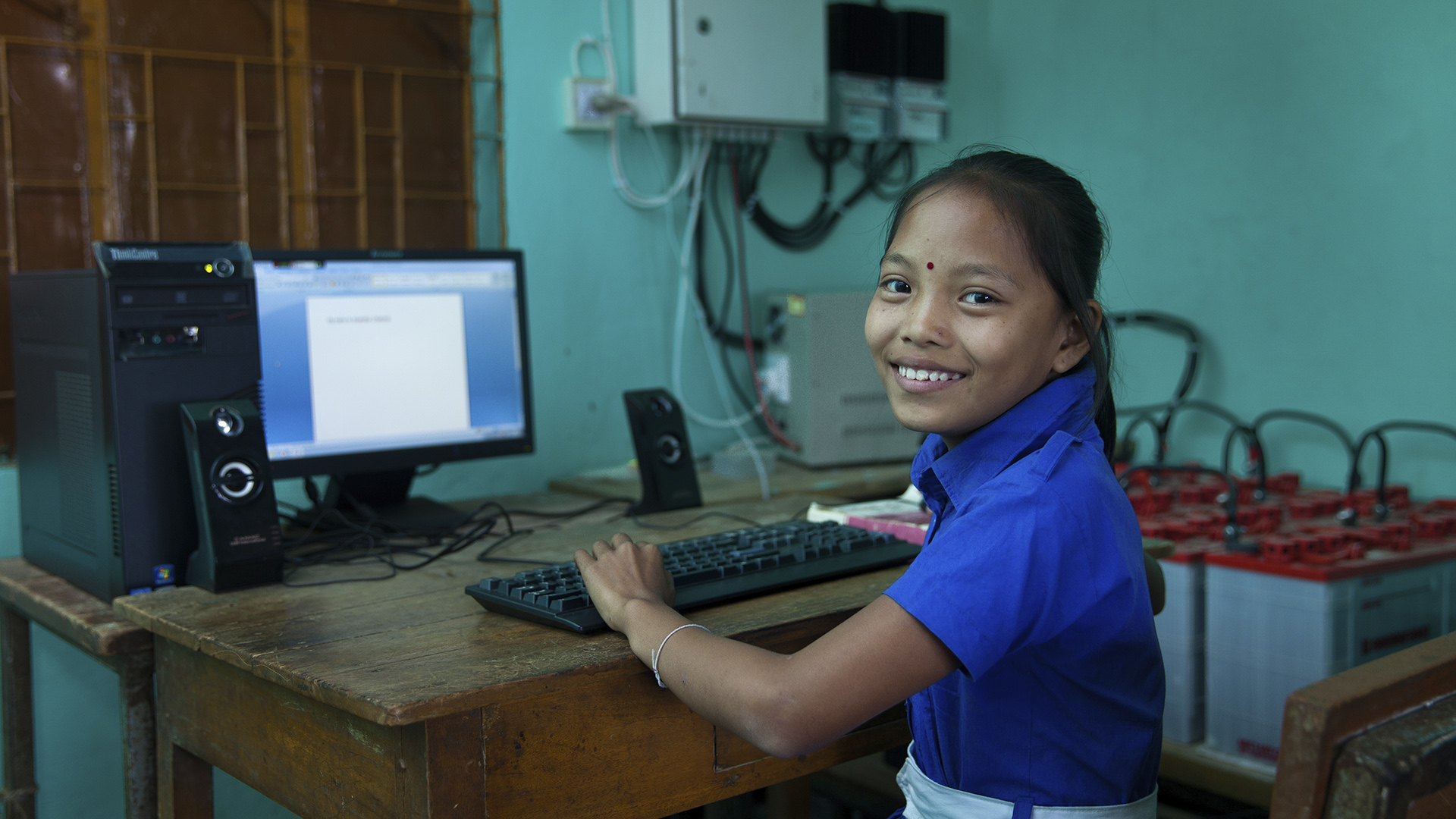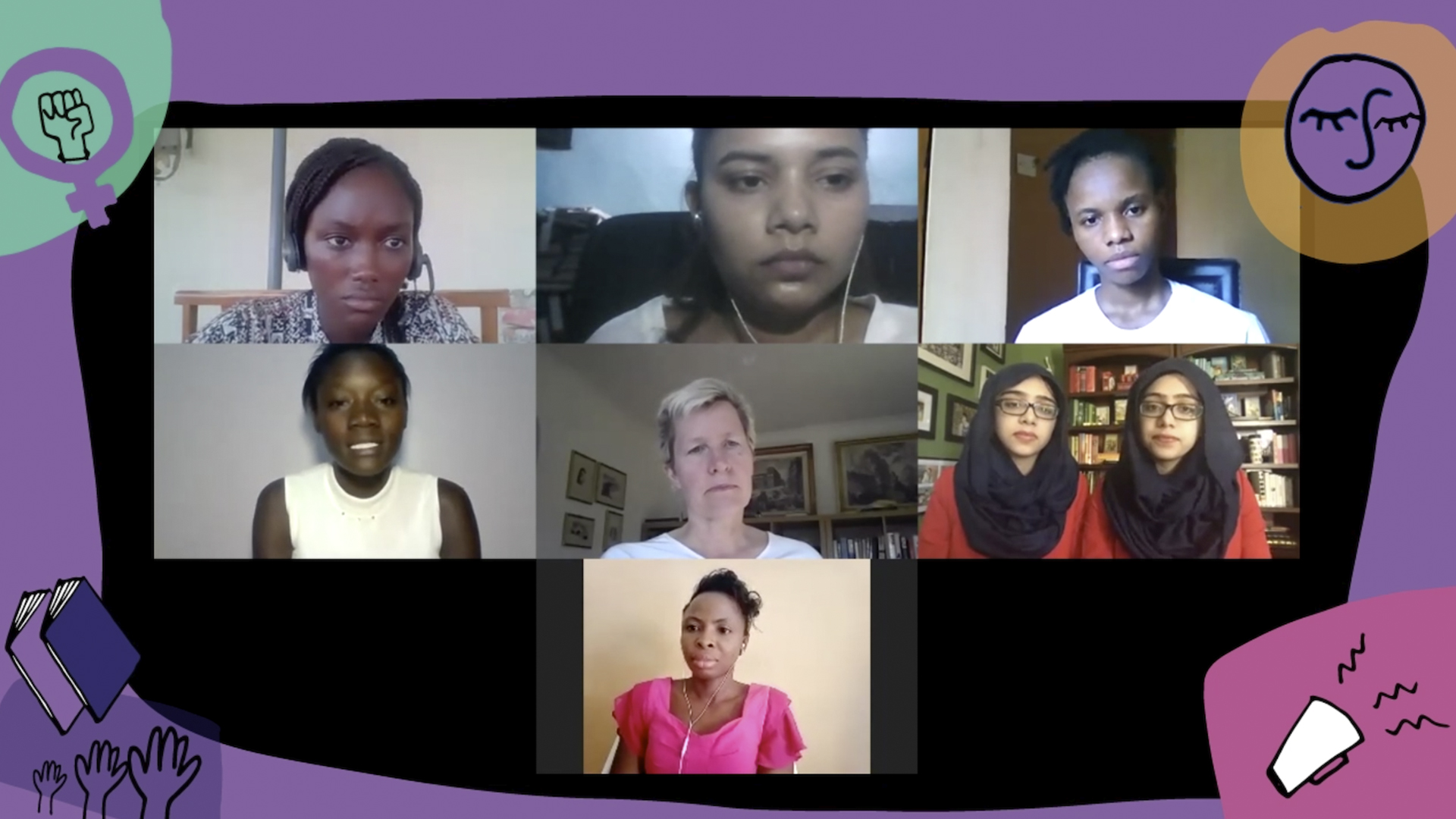The 4th Industrial Revolution and ICT Revolution continues to gain momentum in Africa, bringing increased potential for economic growth for many nations, communities and individuals investing in science, technology, engineering and mathematics (STEM) sector. However, the revolution also threatens to further exacerbate gender inequalities, particularly in Africa and developing regions.
Girls and women continue to be held back from joining the digital revolution at the same pace as boys and men
According to the International Telecommunications Union, there will be more than two million technology jobs that cannot be filled because of a lack of digital specialists by 2029; and half of all current jobs will have disappeared by 2050. This means those who are ICT or STEM literate will be better placed to find decent and well paying employment. However, women are held back from joining the digital revolution at the same pace as men. Globally, women represent only 3% of ICT graduates.
According to the World Economic Forum, women make up 14% of the Cloud Computing workforce, 20% of the engineering workforce, and 32% of the Data and AI workforce. In Africa, AU Member States have put in policies and investments to support the growth of the sector, in line with the African Union Agenda 2063 which recognizes digital skills and ICT as critical “21st Century” skills for the future, that will unlock economic and social development across Africa. However, women represent only 30% of those engaged in STEM in the continent (UNESCO). The exclusion and low representation of women and girls in STEM poses a great threat to efforts that seek the socioeconomic and political development of women in a growing digital global economy. In education, the continued exclusion of girls and young women from training and access to ICT means they will be further left behind in education, training and employment opportunities.
According to UNESCO’s Gender and School Closures Analysis, gender roles and expectations determined whether girls and boys were able to participate in, and benefit from, remote learning strategies during the Covid-19 pandemic. Limited access to internet-enabled devices, a lack of digital skills, and gender and cultural norms placing greater restrictions and monitoring of girls’ use of devices precluded girls’ engagement with digital remote learning modalities in many contexts. Gaps in perceived or actual digital skills also affected teachers, in particular female teachers, and contributed to reported higher levels of stress.
African Girls Can Code: the initiative training and empowering girls and young women to take up studies and careers in the ICT sector
Teaching girls to code is one approach that can help to close the gender gap in the tech world, and bridge the gender digital divide. The African Girls Can Code Initiative (AGCCI) is a four year programme that aims to train and empower girls and young women aged 17-25 to become computer programmers, creators and designers, placing them on track to take up studies and careers in the ICT sector. The AGCCI coordinates Coding Camps in countries across Africa, advocates for ICT, coding and gender equality to be mainstreamed into national curricula, and implements national media campaigns involving women role models to address discriminatory norms. The AGCCI also facilitates an online platform for girls attending Coding Camps, where learners can stay connected, share experiences and learning, and mobilize a community of practice and inspiration.
This Girls in ICT Day, we’re amplifying the voices and experiences of girls and young women who overcome the challenges of Covid-19 to continue blazing a trail towards gender equality in and through ICT:
Hanna Wasihun, Ethiopia:
“COVID-19 is a global pandemic which has caused a global crisis. Schools were closed for the last 8 months. Here in our country, Ethiopia, many girls have been exposed to sexual abuse. In our village, girls gathered and created awareness on how to protect ourselves and inform the authorities near us of such cases. In the rural areas, students do not have access to smart technology. As such, I have been working on designing a platform for cell phones to access online technology especially for online learning purposes.”
Laetitia Vanganayi, Zimbabwe:
“I graduated from High School last year and this year, 2020, I was expecting to start University, pursuing my software engineering career, but this all changed due to the COVID-19 pandemic. l had to stay at home 24/7 not doing much. This led me to reflect on my life, what l really wanted and how could achieve it. That’s when l realized that l wanted to pursue software engineering, because l want to show other girls and women out there that IT related careers are not only for men, and that girls can excel in them as well. Therefore, l started teaching 3 little girls from my community basic theory computer lessons, and that’s what l am still doing.”
Fatou Ndiaye, Senegal:
“I am currently in my second year of software engineering (web development). The period of COVID- 19 was very difficult at the beginning, as the courses at the university were stopped abruptly due to the increase of the virus, but we then resumed studies through the internet for online courses. However, even this solution was a little difficult due to connection problems sometimes. In the meantime, I have continued working on my project (which is called BaanaBaana 221) that could help many young people to make online sales and at the same time to continue their studies and also pay for their studies too. I work from home, doing housework and studying at the same time.”
Malerato Mphahlele, South Africa:
“I’m doing my final year of High School, and I must say that it has been complicated by this COVID-19 pandemic. Learning became very hard during the lockdown in South Africa where most of the learners from rural areas faced connection problems where they were unable to take full time online classes. On the other hand, this period gave me an opportunity to develop my coding skills and assist others around me. I helped a friend of mine in implementing her expo idea of an ‘alerting system’ that would flatten the exponential curve of GBV and human trafficking in South Africa. The lockdown has helped me discover a lot of things that I didn’t realize around me and it has also given me an opportunity to review my environment and come up with practical solutions that will benefit my village.”
Join us in calling for gender equality in and through ICT
Across Africa, girls and young women have shown innovation, resilience and solidarity to continue learning, supporting their communities, and developing their ICT skills, particularly through Covid-19 lockdowns and school closures. With support from the AGCCI, girls and young women were able to overcome challenges of the gender digital divide to leverage their ICT skills to advance their education and that of others. Some girls and young women also launched initiatives to prevent and respond to rising cases of gender-based violence, financial challenges and learning loss in their local communities. Girls and young women are demonstrating the positive ripple effect of greater gender equality in ICT.
This Girls in ICT day, join us in calling for more action and resources to overcome negative gender stereotypes in STEM and ICT, mainstream gender-responsive ICT training in education curricula, and ensure all learners have the support and opportunities to build relevant skills for an increasingly global, digital education and economy.


